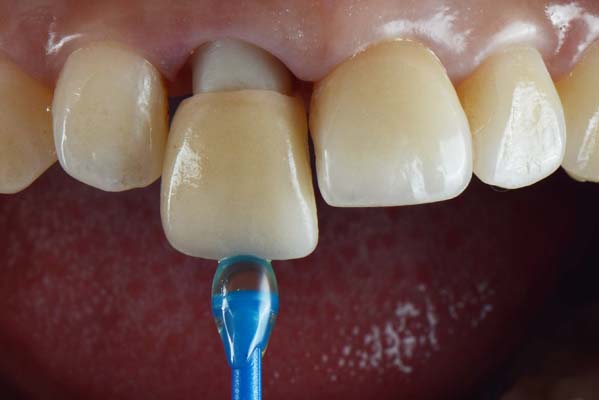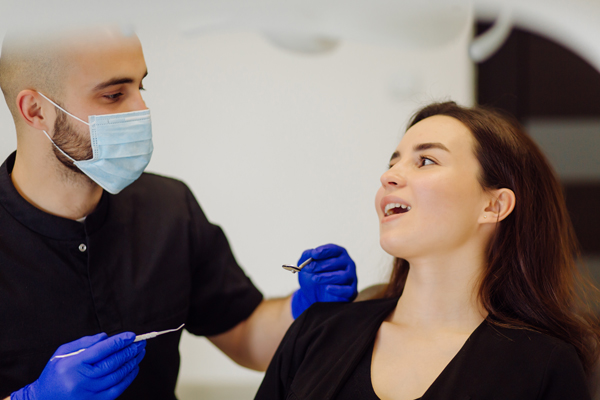How Does a Dentist Prepare a Tooth for a Dental Crown?

A dental crown is a cap used to completely cover back moral teeth. The process of having a crown placed is quite simple, but there are a few key preparation steps that a dentist must take first.
The preparation steps for getting a dental crown
Outlined here are the steps that a dentist takes to prepare a tooth for a dental crown. Review this information when preparing for an upcoming appointment.
First and foremost, the dentist will numb the patient using a local anesthetic. This is necessary because it helps prevent the patient from feeling any pain or discomfort.
1. Damage removal
The first step that a dentist takes in preparing a tooth for a dental crown is to remove any damaged or decayed areas. A dental drill is used to carefully do this. Although it sounds painful, the dentist does ensure that proper numbing has been done to eliminate any discomfort. Having damaged or decayed areas removed is crucial in restoring the health of the tooth and surrounding areas.
2. Cleaning
Next, the dentist cleans out the tooth. In most cases, the removal of damage or decay will result in empty spaces, even if they are small. Because these empty spaces are susceptible to bacteria growth, it is essential that they are thoroughly cleaned out and disinfected.
3. Filling
Once the tooth has been cleaned out, the dentist will fill any empty spots with a dental material called gutta-percha. This material is 100% safe for the teeth and mouth. It is used to keep bacteria out of the tooth, which eliminates any potential for new infections.
4. Smoothing
The final step in tooth preparation is for the dentist to smooth the surfaces of the tooth. Often, a decayed or damaged tooth is rough to the touch or has areas that are sharp, which could put the rest of the mouth at risk of being scraped or cut. To smooth out the surfaces, the dentist will use instruments to shave down certain areas. The numbing agent provided at the start of the procedure will prevent any discomfort.
What happens next
After the dentist follows the preparation steps, the tooth will be ready for the temporary dental crown. From there, the patient returns home for a few weeks while waiting for the permanent dental crown to be ready.
The dentist advises patients to avoid eating anything too hard or sticky, as this could dislodge the dental crown and damage the freshly restored tooth.
Find out more
Individuals who want more information on what it is like to get a dental crown should consult directly with a general dentist. Any questions or concerns about the process can be addressed by the dentist, and an evaluation can be performed to get started. Reach out today to learn more or to get scheduled!
Request an appointment here: https://www.drtimhubbs.com or call Vineyard Hills Dental Care at (925) 233-1143 for an appointment in our Livermore office.
Check out what others are saying about our dental services on Yelp: Dental Crowns and Dental Bridges in Livermore, CA.
Recent Posts
Dental crowns are restorations that can help repair and reinforce your teeth. You may be thinking about getting long-term dental aesthetic enhancement and protection. If you are, you may want to consider getting dental crowns. There are myriad materials available for this type of restoration. Regardless of the number of crowns you want for your…
When a person has a missing tooth, one of the quick and affordable options they might consider is a dental bridge. Missing teeth affect daily dental functions and social interactions. This article covers what a dental bridge is, how it works, and how a bridge addresses a gap in the smile due to missing teeth.A…
Are you considering a dental bridge because you are missing some of your teeth? Or maybe thinking about dental implants? When missing teeth, it is necessary to find a tooth replacement option so that you can continue to be in good oral health. There are a few things that are important to consider when looking…
Tooth fillings offer a simple approach with little to no pain. This dental restoration treatment has long been the standard for restoring and rebuilding teeth damaged by cavities, injury, or minor imperfections such as chips or cracks. When considering different dental restoration options, it is a good idea to get familiar with how each procedure…


